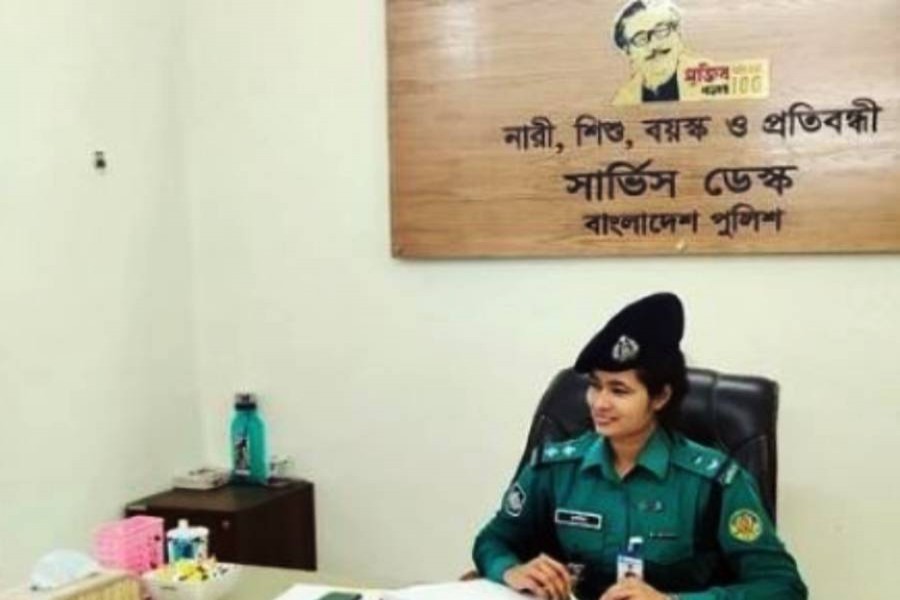Although the service desks for women, children, the differently abled and elderly people at all the 659 thanas (police stations) of the country were formally inaugurated by the prime minister on Sunday last, the initiative made its debut in January, 2020 as a pilot project. The impression is that it has yielded positive results which can only be advanced in the days to come through further trial, training, dedication and work ethics. In fact, the prime minister has stressed the need for the police to earn the trust of the people, particularly those who are helpless and cannot make their cases heard. In short, she hopes the people in uniform to be 'police of the people'. Indeed, it sounds more like rhetoric as long as the law enforcement agencies do not opt for a paradigm shift in their attitudes to the weak and vulnerable in society.
Let alone the serious crimes a section of the law enforces is involved in, the attitude towards some social norms, customs and traditions some of them at times demonstrate speak volumes for their lack of culture and the minimum level of progressive outlook. The recent 'tip' (coloured dot or sticker worn at the centre of forehead by girls and women) incident has made a critical statement of such an attitude. Sure enough, quite a few members of the police have also excelled in their humanitarian services, particularly in time of the pandemic. In a number of incidents, old and infirm parents abandoned near bushes and on streets by their sons and daughters were rescued by the police, taken to hospital for treatment and even given financial support so that they lived well for the rest of their lives. No wonder, alongside the inauguration 400 homes built by the police were handed over to the homeless people on Sunday. Such acts make them 'people's police', no doubt.
Indeed, the force is changing ---albeit slowly --- for the better and becoming more pro-people. But still there are miles to go before they are mostly taken into confidence by the teeming multitudes. The colonial legacy of British and Pakistani times along with the aberrations they were heir to during the autocratic rule will take time to disappear altogether. The system is still under experiments and it will come out better through trial and experiment. That the model thanas introduced earlier apparently have failed to deliver cannot be denied. But the initiative was not bad at all. Let the service desk introduced to serve the special need of sections of the people come out in a flying colour.
So far, signs are positive. Since its introduction as a pilot project, the special service has, reportedly, served 181,000 women, 32,286 children and 11,081 elderly people. A similar desk named 'welcome desk' was introduced in India, which has been encouraging underprivileged people to lodge complaints against perpetrators. One only hopes that the service desk here as well draw attention of the oppressed by setting examples of standing by them. People have to be given the sense of their rights and to uphold those against the oppressors in society the police will be the first to intervene. This is how society can become more just and cohesive.


